This Cards Against Humanity-like game for jaded aid workers is as cynical about the world as they are
JadedAid—a Cards Against Humanity-inspired game for the thousands of aid workers and volunteers around the world—includes cards like “an educated angry African,” “coming to terms with the fact that your intervention is the problem,” “avoiding missionaries,” and other gems:
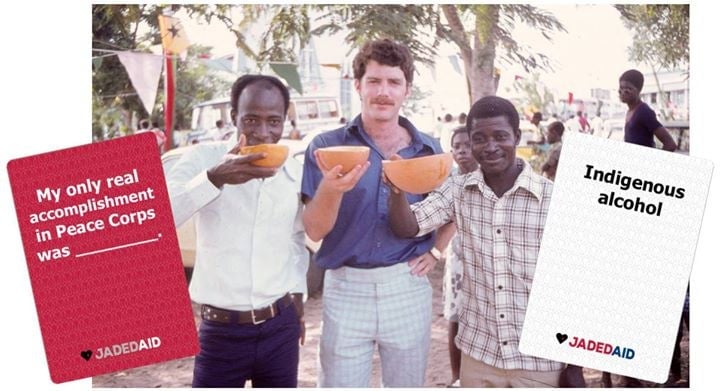

JadedAid—a Cards Against Humanity-inspired game for the thousands of aid workers and volunteers around the world—includes cards like “an educated angry African,” “coming to terms with the fact that your intervention is the problem,” “avoiding missionaries,” and other gems:
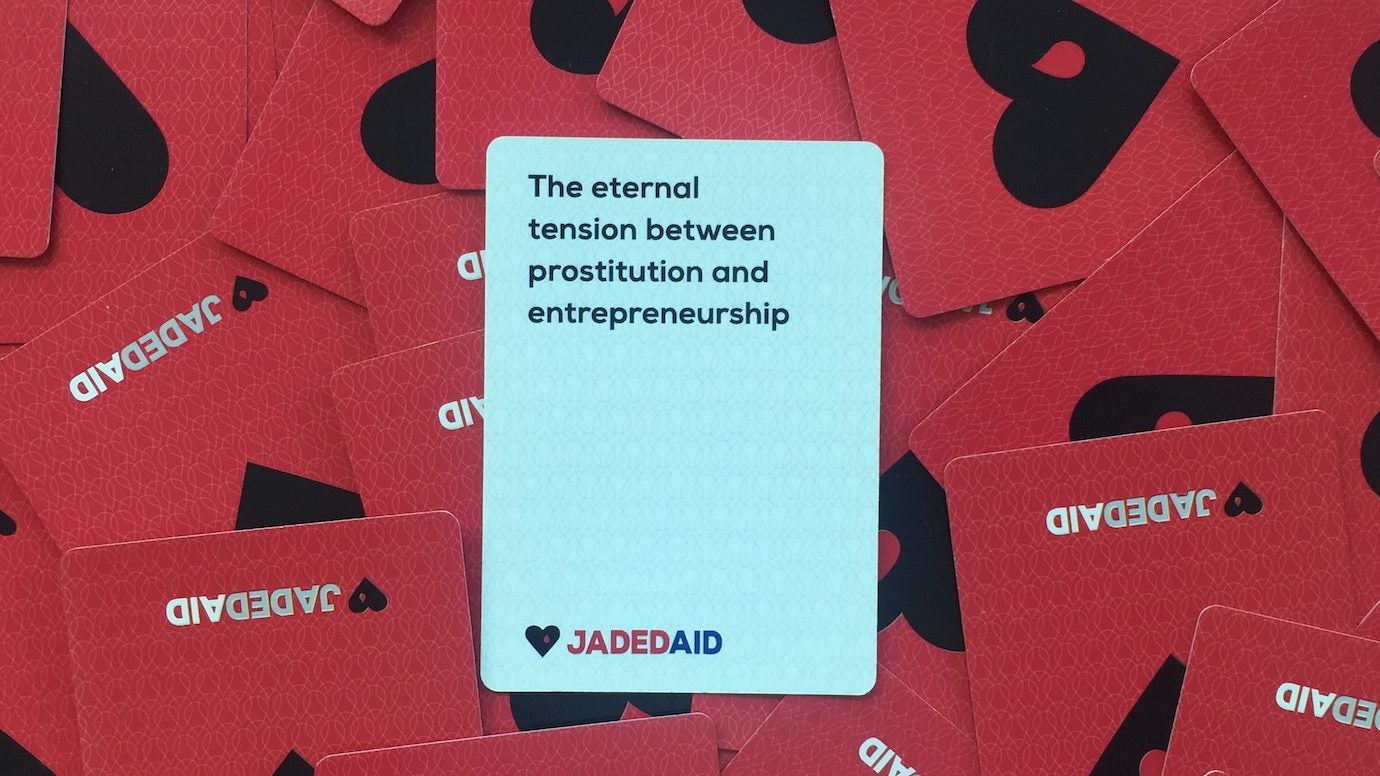
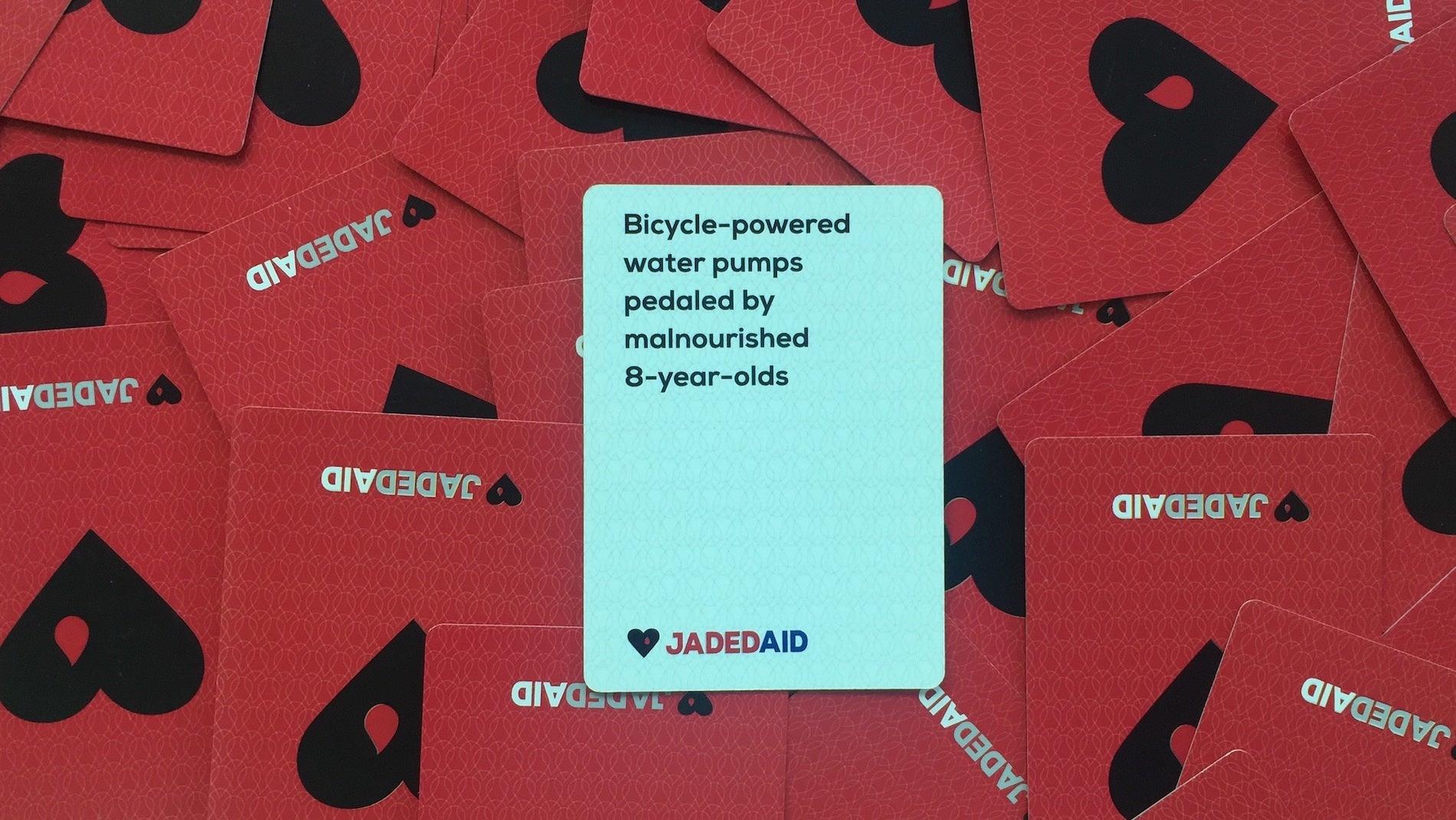
Unlike the more generalized cynicism of Cards Against Humanity (CAH), JadedAid’s cynicism is specific—that of the world-weary humanitarian worker trapped in the “development industrial complex,” or “DIC,” as cofounder Teddy Ruge calls it. By that he means the multi-billion dollar aid industry focused on poverty and conflict in developing and crisis-stricken countries.
To play, a ”donor” player reads out a question card to which the rest of the players, or ”implementers,” each submit an answer card. The donor player picks his or her favorite answer and that person becomes the donor. The cards can also be added to a regular CAH pack “to make the fun last longer than Mugabe’s rule,” according to the game’s instructions.
Founded by three development workers who came up with the idea at a bar in Washington, DC, JadedAid launched last year through a Kickstarter campaign. When the founders asked for suggestions for cards for the game, it became clear they had hit a nerve: They were overwhelmed by over 2,000 submissions. They narrowed those down to just 200, but are now working on an expansion pack focused on the Peace Corps.
Ruge, a social entrepreneur based in Uganda, and his colleagues soon realized the game could be about more than laughing at themselves. Now, Ruge uses JadedAid at development conferences to start discussions about how the industry can improve.
“One of our missions is to change the way we talk about development,” says Ruge. (The “educated angry African” card, he says, was named in his honor.) “We want you to have fun and spit beer through your nose, but on Monday morning we want you to think about it and have a conversation with your peers about the absurdity that such cards come from real situations.”
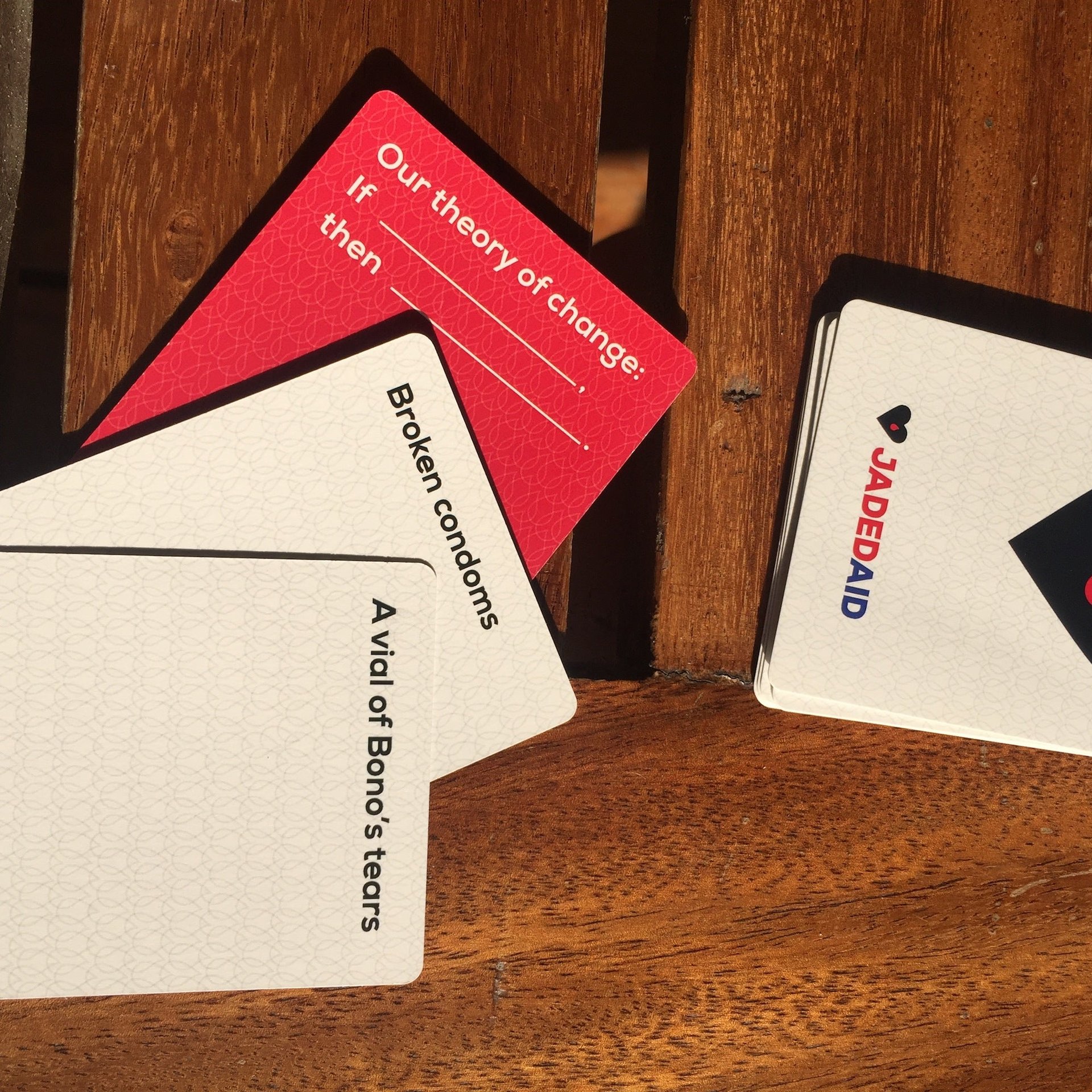
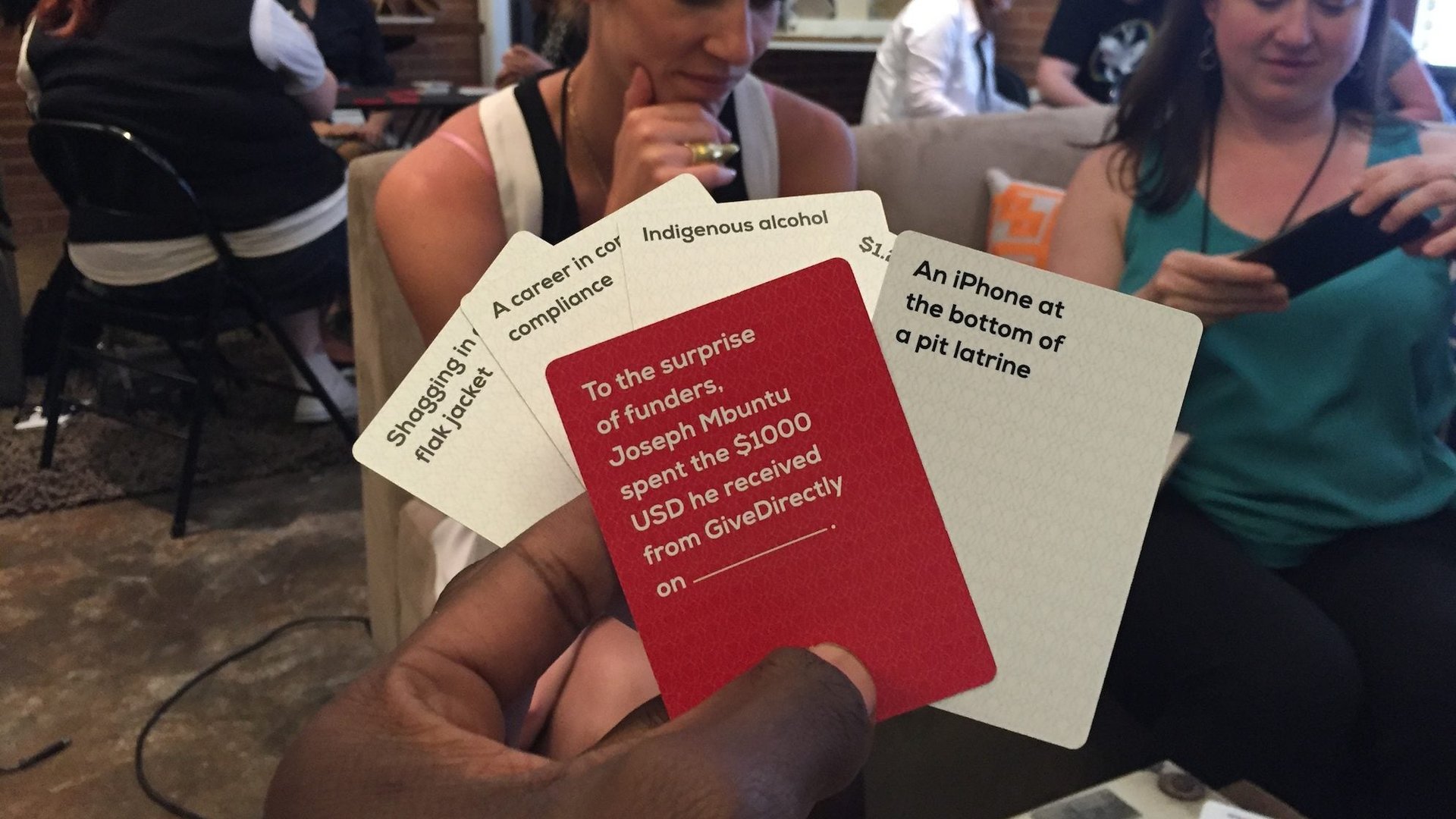
Specifically, Ruge wants to change perceptions of the people these aid projects are intended to help. “International development to me is focused on Western organizations, mostly run by white individuals, coming to brown nations to tell them what to do,'” he says. ”Our role as people from the developing South, the brown people, is to support the white people. We hope that this begins decolonizing the development industry to understand we are partners and capable of coming up with solutions.”
It’s a sentiment that is increasingly shared in host countries. In Kenya, one of the biggest hubs on the continent for development organizations, a government crackdown on the sector has been welcomed by those who see foreign NGOs workers as unfairly enjoying benefits and jobs in Kenya that don’t get passed on to locals.
In a similar vein, a recent satirical Instagram account for a “White Savior Barbie” now has over 100,000 followers.
At least some at the US Agency for International Development appear to share JadedAid’s sense of gallows humor. In June, the company received a polite rejection letter to its crowdsourced application for $1 million in funding from USAID’s Development Innovation Ventures. In its pitch, submitted last year, JadedAid said the game would give aid workers a way to “be the cynicism they want to see in the world.”
USAID’s response included recommendations to add “glossy, well-lit photos of smiling beneficiaries” and incorporate technological platforms like Snapchat. “We don’t know what that is, but please find a way to incorporate it so we can tell our bosses that we are on the cutting edge,” the letter said.
“We would all buy this,” the letter from USAID said, “Some of us may have secretly already supported the Kickstarter. Don’t tell anyone.”